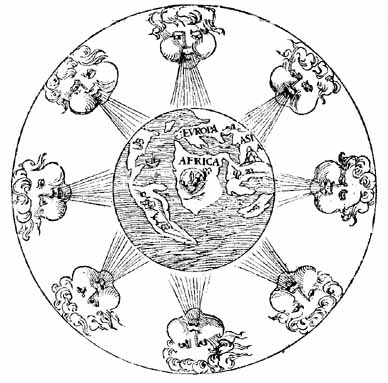CFP: "Colour in the 17th and 18th Centuries: Connexions between Science, Arts and Technology" - 28-30 June 2012, Technische Universität Berlin (Germany) - Deadline: February 27, 2012
CALL FOR PAPERS COLOUR IN THE 17TH AND 18TH CENTURIES: CONNEXIONS BETWEEN SCIENCE, ARTS, AND TECHNOLOGY
International conference, Technische Universität Berlin, 28-30 June 2012 Knowledge of how to use, combine, analyse, and understand colour has always been widely distributed, if not dispersed. Painters and architects, dyers and printers, pigment producers and merchants, physicists and chemists, natural historians and physiologist, among others, have been dealing with colour, its properties, mixtures, harmonies, meanings and uses. For long periods, different communities that were concerned with colour and the knowledge about it did not interact ― at least so it appears. One of the first to come up with fundamental claims concerning colour in full generality was Newton whose 1704 Opticks indeed quickly became a common reference point for most of those who reflected on colour. Throughout the 18th century, however, the reactions to Newton remained wildly controversial, from unrestricted appraisal via indifference to open and fierce opposition. Several attempts to reconcile Newton’s account with practitioner’s knowledge remained unsuccessful, and this was still the case in early 19th century, when the physiology of colour perception opened yet another field of colour research. The central aim of the conference is to bring together scholars who are interested in how the various strands of colour use and knowledge were interwoven and connected. We invite contributions that address those connexions: between traditions and specific accounts in experimental philosophy, painting, natural history, chemistry, dyeing, trading, producing, standardizing, etc. While the period covered is restricted to 17th and 18th centuries, the geographic frame is as open as possible and encompasses European and non-European cultures likewise. The conference will not have parallel sessions, since we aim at a truly transdisciplinary discussion. There will be four keynote lectures by Jenny Balfour-Paul (Exeter University), Ulrike Boskamp (Freie Universität Berlin), Sarah Lowengard (The Cooper Union, New York), and Alan Shapiro (University of Minnesota), and a larger number of contributed papers. The conference is organized by Magdalena Bushart (History of Art, TU Berlin), Reinhold Reith (History of Technology, Salzburg University), and Friedrich Steinle (History of Science, TU Berlin).Accepted presentations will have a timeslot of 25 minutes talk plus 15 minutes discussion. An application for external funding has been submitted: in case it will be successful, we shall be able to support every accepted proposal with travel and accommodation. Submissions should enclose an abstract of no more than 500 words and information about name, institutional affiliation and e-mail address of the author, plus a biographical note of no more than 100 words. They should be sent by e-mail (preferably in pdf format) to: nina.krampitz@tu-berlin.de and arrive not later than 27 February 2012. Proposals will be reviewed, and notification of the result will be given by end of March 2012.For further information, please contact friedrich.steinle@tu-berlin.de--
Prof. Dr. Friedrich Steinle
Inst. f. Philosophie, Literatur-, Wissenschafts- und Technikgeschichte
Technische Universitaet Berlin, Sekr. H 72
Strasse des 17.Juni 135
10623 Berlin/ Germany
Tel. (+49/ 0)-30-314-24016/ -24068/ -24841
Fax (+49/ 0)-30-314-25962

